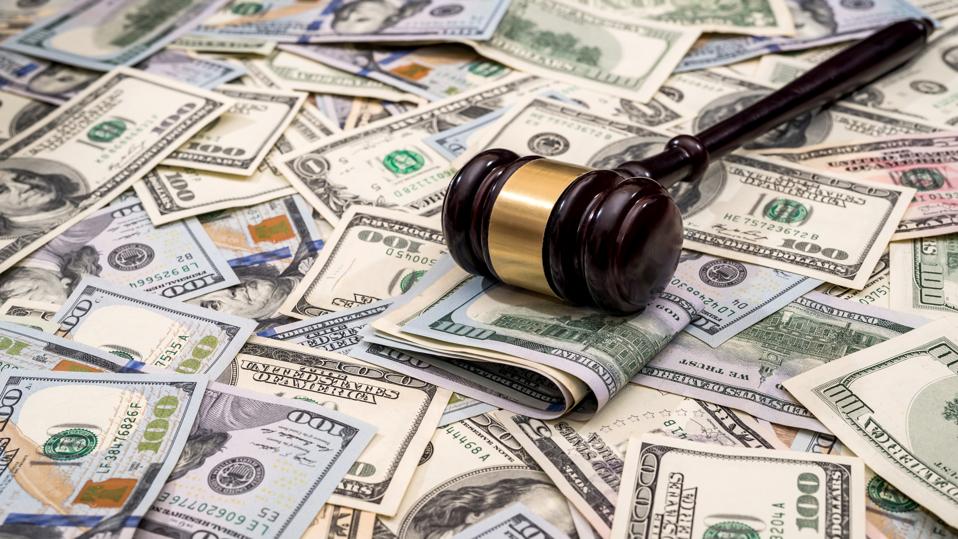Letting South Carolina police and prosecutors seize and keep cash, cars, and other valuables and use the proceeds to pad their budgets violates the Fifth, Eighth, and Fourteenth Amendments, a circuit court judge in Horry County, South Carolina ruled. In a 15-page decision, 15 th Judicial Circuit Judge Steven H. John declared that South Carolina's civil forfeiture laws, which let the government "seize unlimited amounts of cash and other property when no crime has been committed, " run afoul of the U.S. and South Carolina Constitutions' guarantees of due process and bans on excessive fines.
The court's decision comes on the heels of a wide-ranging, multi-part investigation into civil forfeiture by the Greenville News. Across the state, South Carolina agencies seized $17.6 million between 2014 and 2016. More than 1,500 individuals (or roughly 40% of all forfeiture cases in the state) had their property taken, despite never convicted of a crime. Their reporting further found that "65 percent of all money police seize is from black males" (like the defendant in the Horry County decision, Travis Lee Green), even though African American men account for a mere 13% of the state's population.
Galvanized by the investigation, South Carolina lawmakers, led by Rep. Alan Clemmons, backed legislation that would completely abolish civil forfeiture. Unfortunately, the bill didn't fully account for the state's procedural idiosyncrasies in how it forfeits property; it stalled. A fully revised version is expected for next year's session.
"Legislative reform is by no means moot," Clemmons said. "The bill has over 100 co-authors from across the political spectrum who want significant reforms enacted in 2020."

The Horry County Solicitor's Office has filed a motion urging Judge John to reconsider his ruling, claiming it "inaccurately described" state law; a hearing is currently slated for early December. Though the decision currently doesn't extend statewide, if it's appealed and upheld, or if lawmakers abolish the practice, South Carolina would become the fourth state to end civil forfeiture, joining North Carolina, Nebraska, and New Mexico.
"This is an area of law that is being scrutinized across the country," Green's attorney, Alex Hyman wrote in a statement, "I am hopeful that our court system along with our state legislature will realize the issues with the current seizure and forfeiture laws."
The case began when the 15 th Circuit Drug Enforcement Unit suspected Travis Lee Green was selling drugs in and around Myrtle Beach. Using a confidential informant, police made a series of controlled buys, purchasing roughly one ounce of cocaine in total from Green. In November 2017, police arrested Green and searched his home, uncovering crack and powder cocaine, digital scales, marijuana, and $20,771 in cash. One week later, the government filed a motion to forfeit Green's money, arguing that it should be permanently confiscated because it was seized in "close proximity" to drugs and was reportedly "used to facilitate" the drug trade.
In October 2018, Green pled guilty to one charge of distributing cocaine as well as one charge of "possession with intent to distribute" cannabis. Green was sentenced to 15 years in prison. Though he could have faced fines of up to $50,000, he wasn't actually fined.
Green kept fighting to keep his cash. Suddenly, what began as a run-of-the-mill forfeiture case became a major challenge to civil forfeiture statewide. This past February, in a landmark case litigated by the Institute for Justice, the U.S. Supreme Court unanimously ruled that the Eighth Amendment's ban on "excessive fines" applies to cities and states, not just the federal government. In Timbs v. Indiana, the High Court rejected the Hoosier State's argument that it could forfeit a $42,000 Land Rover over $400 in drug sales because the state wasn't bound by the Excessive Fines Clause.
Following thedecision, Judge John asked attorneys for the Solicitor's Office and Green to each "submit a brief outlining the constitutionality of the South Carolina civil forfeiture statute." Fully briefed, in August, Judge John excoriated South Carolina's civil forfeiture laws, which "place the burden on the property owner to prove their innocence" and grant the government "unfettered authorization to seize unlimited amounts of property from citizens without regard to the proportionality of the offense committed." The judge, however, saved most of his analysis (and ire) on the profit incentive behind civil forfeiture.
Under state law, the seizing agency gets the first $1,000 of any cash seized, as well as 75% of the remainder. Prosecutors receive 20% of the proceeds, with the remaining 5% sent to the state's general fund. Law enforcement agencies can then use forfeiture proceeds to cover program expenses (like salaries for forfeiture officials).
According to Judge John, "South Carolina forfeiture programs have de facto power over their own spending-the more revenue they raise, the more they can spend." As a result, this form of "self-financing" creates "an institutional incentive for forfeiture program officials to vigorously pursue forfeitures" that violates the constitutional right to due process.
"The Due Process Clause entitles a person to an impartial and disinterested tribunal in both civil and criminal cases," Judge John wrote, quoting a 1980 Supreme Court decision. "Due process does 'not permit any procedure which would offer a possible temptation to the average man as a judge to forget the burden of proof required to convict the defendant, or which might lead him not to hold the balance nice, clear and true between the state and the accused.'"